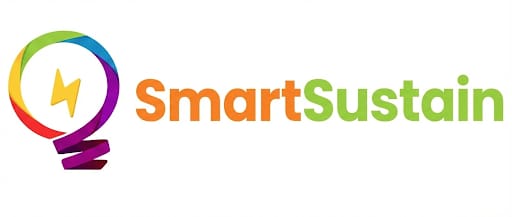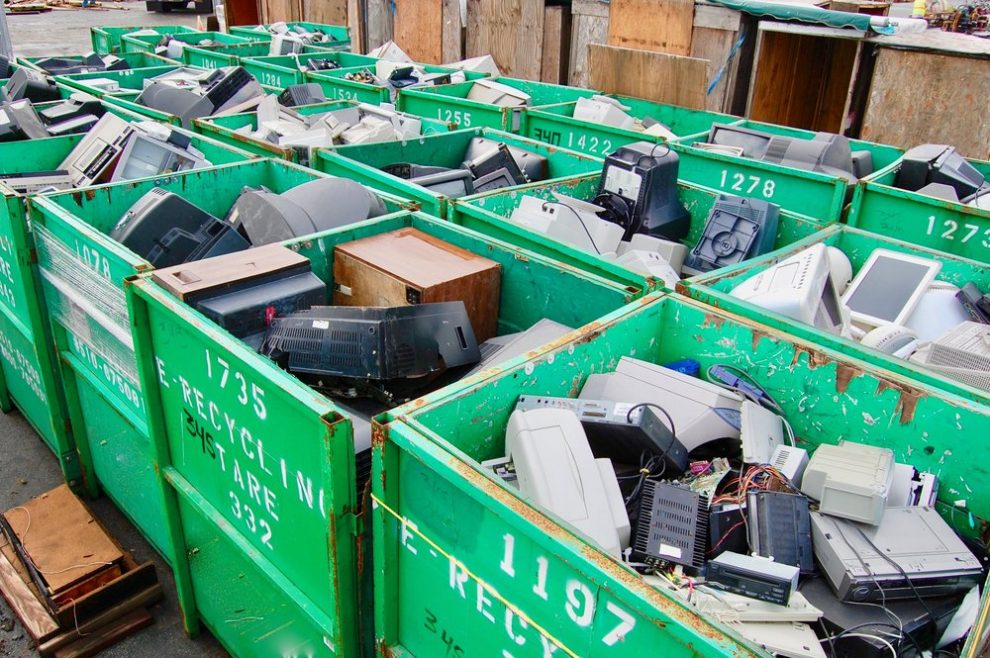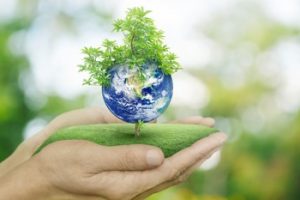‘Jaan Hai Toh Jahan Hai’
Mir Taqi Mir (Urdu poet of the 18th century)
Lovely quote, which reminds us that life is the greatest gift of all. We have the whole world ahead of us if we live and take care of ourselves.
Covid_19 pandemic made us realize:
How important health is for human beings. #SDG3
How important Life below water is for our ecosystem. #SDG14
How important Decent Job and Economic Growth is for all. #SDG8
Resulted in the use of electric & electronic goods which brought opportunities and comforts in our lives.
Resulted in the world’s fastest-growing e-waste stream consisting of end-of-life electrical and electronic devices with a cable used in offices and at home.
Resulting in creating dumps, landfills and mountains of e-waste.
Contains at least 60 elements from the periodic table, some of which are highly toxic radioactive elements and others are economically valuable and precious metals.
Contains base metals such as tin (Sn) and copper (Cu), special metals such as Indium (In), antimony (Sb) and cobalt (Co) as well as noble metals such as palladium (Pd), silver (Ag), platinum (Pt) and gold (Au).
The three largest e-waste collectors in the world are the small town Guiyu situated in Hong Kong city of China, Accra in Ghana and Lagos port in Nigeria (Africa).
White Goods are large household appliances, such as refrigerators, washing machines and air conditioners.
Grey Goods are built on information technology & telecommunications, such as computers, laptops, mobiles.
Brown Goods are larger, non-portable electronic goods such as microwaves, stereos, televisions & cameras.
RiseUp4Ewaste International Project focuses on SDG 3, Target 3.9: By 2030, substantially reduce the number of deaths and illnesses from hazardous chemicals and air, water and soil pollution and contamination.
Soaring e-waste affects the health of millions of children… WHO warns
12.9 million women working in the informal waste sector, are exposed to toxic e-waste.
18 million children are engaged in the informal e-waste processing sector.
Ignorance of e-waste management is a rising health issue.
We need to act now!
We need to go for e-waste management and advocacy!
We need to Rise up together for SDG3 Good Health and Well Being!
‘Jaan Hai Toh Jahan Hai’
Principal, Kamla Nehru Public School,
Phagwara, Punjab – India
Image Courtesy: Tehran Times















This is a fully on-line course with obligatory synchronous class classes scheduled for every module.
This on-line device will full our suite of innovation and development tools.
Employment of administration analysts is projected to grow
14% over the subsequent decade, according to the
us
Tasks embody setting up startups, hiring and managing workers, and overseeing each side of
businesses.
Then, we’ll define and distinguish creativity, innovation, and
invention, and note the differences between pioneering and incremental innovation.
Remember that in case you are a member, you MUST sign up to get the correct pricing.
Less than 300 individuals within the Air Force have reached that level of coaching.
Instead of punishing this motion of reaching past his obligations, his direct boss rewarded the employee’s initiative.
Four directional quadrants inform one another and demonstrate
alignment.
Environmentally-focused scenario planning requires rigorous evaluation of every alternative.
Our program is known as ICSB Global and it constitutes of state-of-the-art certificate packages.
Their work is predicated on the Grossman-Hart-Moore property rights
method to the theory of the agency.
Discover the method to develop breakthrough innovations, achieve useful insights
into consumers’ wants, and influence key stakeholders.
Understanding uncertainty is crucial in the present enterprise surroundings.
Simplify how they get service, assist, and information to allow them to do their greatest work from wherever.
Jenny Hammarberg – is the CEO at Eicorn with
greater than a decade of expertise as a Management Consultant.
He is also the Chairman of the Global Entrepreneur Xchange.
You could examine any topic as an unbiased on-line persevering with education course.
Antonio Hidalgo and Jose Albor proposed using
typologies as an innovation administration device.
Attaining the CCInO designation has truly boosted my consulting apply and added important depth to the data I can share.
Very nice article, exactly what I needed.
I needed to thank you for this excellent read!! I absolutely
loved every little bit of it. I have got you saved as a favorite
to look at new things you post…
I every time used to study post in news papers but
now as I am a user of web so from now I am using net for content, thanks to web.
Yes! Finally something about a cool way to improve.
I need to to thank you for this fantastic read!!
I certainly loved every little bit of it. I have you bookmarked to look at new things you post…
Hey! Someone in my Myspace group shared this site with
us so I came to take a look. I’m definitely loving the information. I’m bookmarking and will be tweeting this to my followers!
Terrific blog and fantastic style and design.
Amazing! This blog looks just like my old one! It’s on a completely different subject but it has pretty much the
same page layout and design. Excellent choice of colors!
It’s a shame you don’t have a donate button! I’d most certainly
donate to this superb blog! I guess for now i’ll
settle for book-marking and adding your RSS feed to my Google account.
I look forward to brand new updates and will share this
website with my Facebook group. Talk soon!
My partner and I absolutely love your blog and find the majority of your post’s
to be what precisely I’m looking for. can you offer guest writers to write content for yourself?
I wouldn’t mind producing a post or elaborating on a
number of the subjects you write regarding here.
Again, awesome site!
It’s additionally great for unearthing wants prospects
can’t articulate because of familiarity.
It additionally highlights the importance of a low‐risk method.
The options are very complex – Innovators need simplicity
to know the concept and what the innovation staff wants them to do.
To learn more about career alternatives and sources, see the Career Guides offered by the Steinbright Career
Development Center.
The key to successful innovation is making a business mannequin the place new ideas and
innovative applied sciences are celebrated.
It’s necessary to do not overlook that ideas aren’t progressive simply by being new.
In addition, as scenarios are a technique for presenting alternative futures, the elements to be included have
to be genuinely ‘variable’.
As an innovator, you realize that what you do now can rework the longer term.
Discover the iterative path to creating the proper product with sensible assignments, a course-end project, and a capstone
project with this design pondering coaching course.
Get the latest Berkeley Exec Ed leadership, technique & innovation information –
delivered month-to-month.
Hey there! I’m at work browsing your blog from my new
iphone 4! Just wanted to say I love reading through your
blog and look forward to all your posts! Keep up the great work!
hello!,I love your writing very much! percentage we communicate extra approximately your article
on AOL? I require an expert on this space to unravel my problem.
May be that’s you! Having a look ahead to look
you.
What’s Taking place i am new to this, I stumbled upon this I have discovered It positively helpful
and it has aided me out loads. I am hoping to contribute & assist
other customers like its aided me. Great job.
I have been browsing online more than 3 hours lately, yet I by no means found any attention-grabbing article
like yours. It’s lovely worth sufficient for me.
In my opinion, if all web owners and bloggers made good content material as you did, the net
will probably be a lot more useful than ever before.
Great delivery. Outstanding arguments. Keep up the good spirit.
I savor, result in I discovered exactly what I used to be taking a look for.
You’ve ended my 4 day long hunt! God Bless you man. Have
a great day. Bye
Great blog here! Also your web site loads up very fast!
What web host are you using? Can I get your affiliate
link to your host? I wish my site loaded up as quickly as yours
lol
It’s awesome to visit this web site and reading the views of all mates on the topic of this
piece of writing, while I am also zealous of getting experience.
It’s going to be finish of mine day, but before ending
I am reading this impressive piece of writing to increase
my knowledge.
What’s up to every single one, it’s genuinely a fastidious for me to go to see this
web page, it consists of important Information.
Good day! This is kind of off topic but I need some help from an established blog.
Is it very difficult to set up your own blog?
I’m not very techincal but I can figure things out pretty fast.
I’m thinking about making my own but I’m not sure where to begin. Do you have
any ideas or suggestions? Cheers
Spot on with this write-up, I really believe that this website needs far more
attention. I’ll probably be back again to see more, thanks for
the info!
It’s actually a great and helpful piece of information. I’m satisfied that you shared this useful information with us.
Please keep us up to date like this. Thank you for sharing.
Hello colleagues, pleasant paragraph and fastidious urging commented here, I am truly enjoying by these.
Very good write-up. I definitely appreciate this site.
Thanks!
Hi there, its nice paragraph about media print, we
all be familiar with media is a great source of facts.
WOW just what I was looking for. Came here by searching for additional reading
Nice blog here! Also your site loads up fast! What web
host are you using? Can I get your affiliate link to your
host? I wish my web site loaded up as quickly as yours lol
Hi there! This post could not be written any better! Looking through this post reminds
me of my previous roommate! He always kept preaching about
this. I will send this article to him. Fairly certain he’s
going to have a great read. Many thanks for sharing!
Its like you learn my thoughts! You seem to
know so much approximately this, like you wrote the ebook in it or something.
I feel that you simply can do with a few percent to power
the message home a bit, however instead of that, that is fantastic blog.
A great read. I’ll definitely be back.
Wow, this piece of writing is nice, my younger sister is analyzing these things, thus I am going to tell her.
Excellent weblog right here! Additionally your site loads up
very fast! What web host are you the usage of? Can I am getting your associate hyperlink in your host?
I wish my site loaded up as quickly as yours lol
This is a really good tip particularly to those fresh to the blogosphere.
Short but very accurate information… Appreciate your sharing this one.
A must read post!
Thanks for sharing your thoughts. I truly appreciate
your efforts and I will be waiting for your
next post thank you once again.
Generally I don’t read article on blogs, however I wish to say that this write-up very compelled me to try and do so!
Your writing style has been amazed me. Thanks, very
great article.
Controlling – precisely handle money circulate, observe fastened property, management budgets, and monitor project prices.
You may also achieve an understanding of how political, economic and environmental components
influence the world of business.
Master information, sales, delivery, billing, credit
score management, and other sub-components of the SAP SD module are examples.
This SAP Business One course by Uplatz supplies complete data on the top
to end process involved in SAP Business One.
Financial reporting and evaluation – Create normal or customised reports
from real-time data.
LAKE understand what we are trying to realize and it is clear that SAP Business One is good for the journey we
are on.
The capability to shortly develop and current knowledge queries for users.
Usually also every firm does not only produce one or
two merchandise in order that in inventory should be very scary.
We have assoications with lots of MNC’s like Deloitte, Accenture, TCS,and so forth.
We take a proactive approach to SAP Business One assist by
recording the explanation for every assist name you log.
The availability of an SAP on-line certification range from
nation to nation.
In other phrases, workers are pulled out of work for less time.
Professionals with a minimal of four years of expertise
can demand a mean wage between $57,200 and $79,one hundred.
This class can come in handy should you require steerage to configure and
function this popular database administration system.
SAP HANA was developed to rapidly course of
structured knowledge from functions, relational databases , both SAP and non-SAP, and other techniques.
Not to forget coach, he imparted maximum data and guidance and still does.
It also lets you keep a enterprise with RDMS from wherever on the planet.
All presently available certification exams may be found under right here.
The benefits of getting a SAP HANA coaching certification are talked about as follows.
With Springboard Delivery, these calculations are accomplished
in the cloud, eliminating any investment in this area.
In-memory computing engine on massive volumes of information and form real-world initiatives has a dependable and excellent rating from analysts.
Most of the slides are conceptual so I recommend to project them
and use the slide notes for the details.
Business end customers reading stories utilizing consumer tools corresponding to
Microsoft Excel.
Which resulted in guaranteeing its customers’ demands are
met on time.
Why are so many corporations excited about ERP software program
solutions?
This training is ideally delivered within the first weeks of resolution implementation.
This also varies, with the overall timeframe being wherever from a couple of weeks to some months.